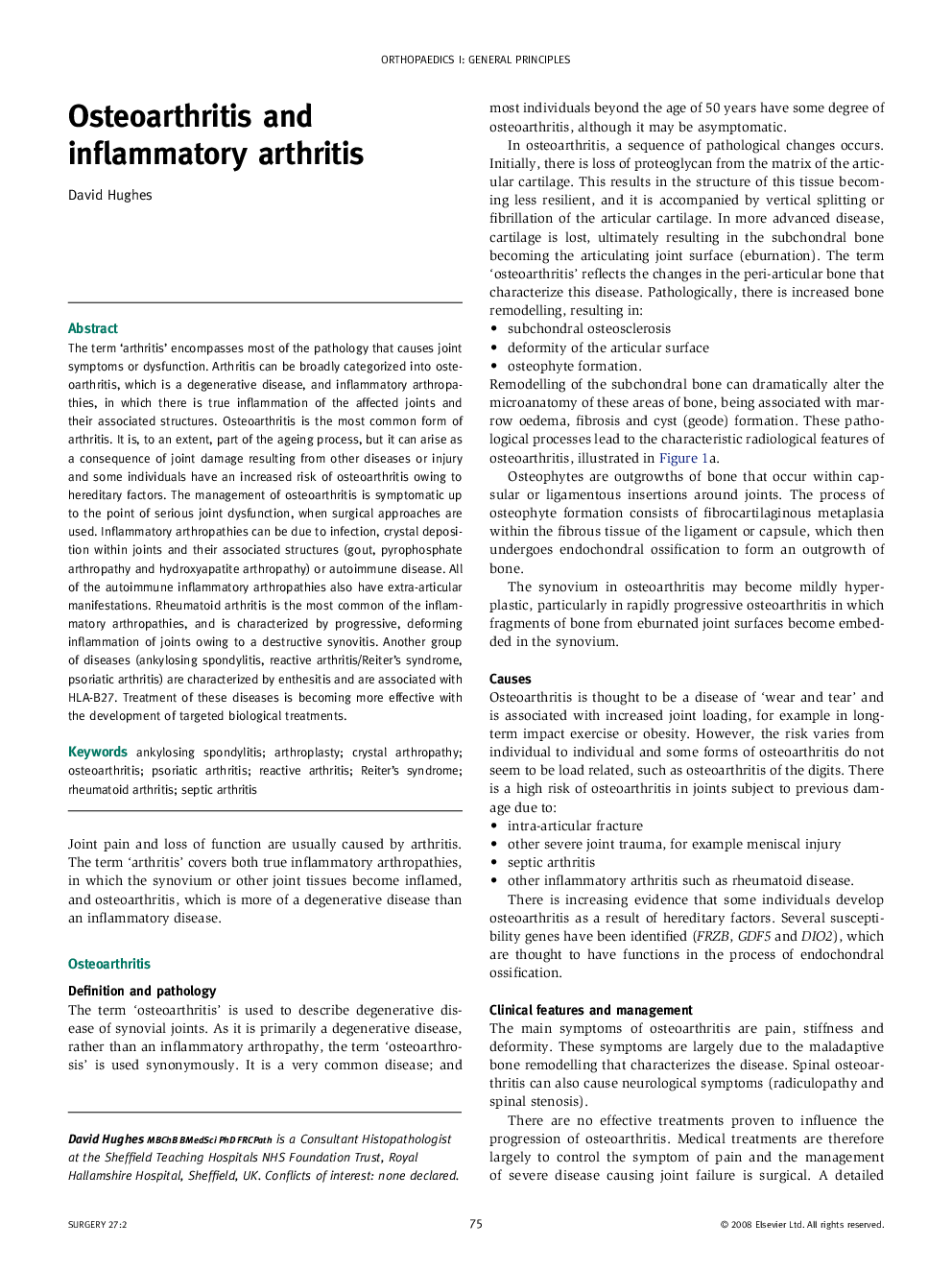| کد مقاله | کد نشریه | سال انتشار | مقاله انگلیسی | نسخه تمام متن |
|---|---|---|---|---|
| 3839794 | 1247821 | 2009 | 5 صفحه PDF | دانلود رایگان |

The term ‘arthritis’ encompasses most of the pathology that causes joint symptoms or dysfunction. Arthritis can be broadly categorized into osteoarthritis, which is a degenerative disease, and inflammatory arthropathies, in which there is true inflammation of the affected joints and their associated structures. Osteoarthritis is the most common form of arthritis. It is, to an extent, part of the ageing process, but it can arise as a consequence of joint damage resulting from other diseases or injury and some individuals have an increased risk of osteoarthritis owing to hereditary factors. The management of osteoarthritis is symptomatic up to the point of serious joint dysfunction, when surgical approaches are used. Inflammatory arthropathies can be due to infection, crystal deposition within joints and their associated structures (gout, pyrophosphate arthropathy and hydroxyapatite arthropathy) or autoimmune disease. All of the autoimmune inflammatory arthropathies also have extra-articular manifestations. Rheumatoid arthritis is the most common of the inflammatory arthropathies, and is characterized by progressive, deforming inflammation of joints owing to a destructive synovitis. Another group of diseases (ankylosing spondylitis, reactive arthritis/Reiter’s syndrome, psoriatic arthritis) are characterized by enthesitis and are associated with HLA-B27. Treatment of these diseases is becoming more effective with the development of targeted biological treatments.
Journal: Surgery (Oxford) - Volume 27, Issue 2, February 2009, Pages 75–79